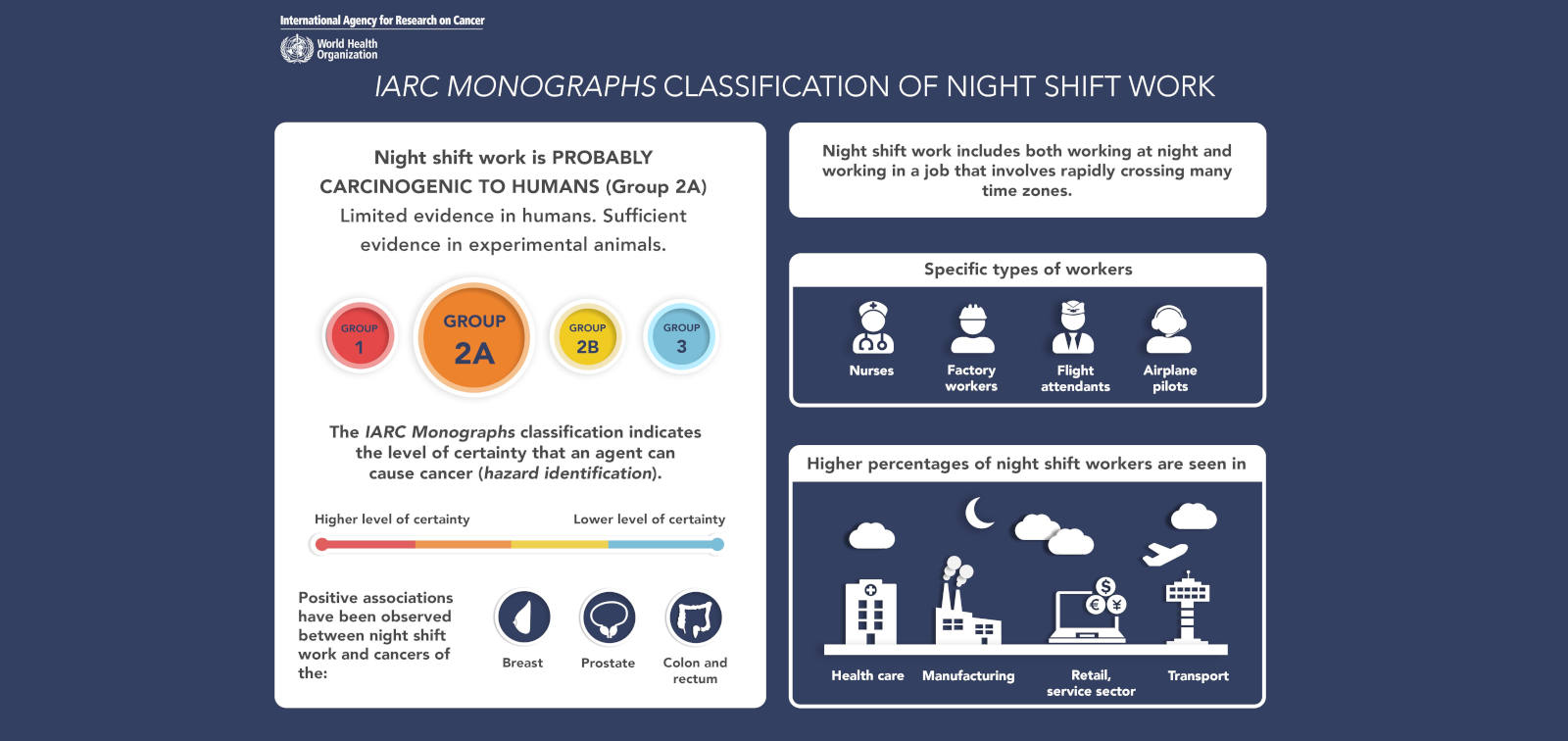IARC Retains “Probably Carcinogenic” Classification for Night Shift Work
ISGlobal researcher Manolis Kogevinas chairs the epidemiology working group that participated in the evaluation
15.07.2019
The International Agency for Research on Cancer (IARC) has just published its decision to maintain the classification of night shift work as being “probably carcinogenic to humans” (Group 2A). The IARC classifies agents into four risk categories on the basis of the strength of the evidence on whether the substance or agent causes cancer. Group 2A is the second highest category in terms of the level of certainty of the evidence.
This is the second time the IARC has evaluated the carcinogenicity of night shift work. Following the first assessment in 2007, night work was classified as a group 2A agent. The new evaluation was undertaken to include the substantial amount of new evidence that has accumulated over the past 12 years. The task was undertaken by a group of 27 experts from 16 countries, including ISGlobal researcher Manolis Kogevinas, who also chaired the Epidemiology working group.
The details of the evaluation process have been published in a summary article in The Lancet Oncology. The full scientific assessment will be published shortly in Volume 124 of the IARC monographs.
“Although there are many more studies available today, we have still not been able to make a clearer assessment,” explains Manolis Kogevinas. “We consider that the evidence suggests a link between night shift work and breast, prostate and colorectal cancer. The evidence in animals is conclusive, but the mechanisms underpinning the association between night shift work and cancer in humans have still not been fully established.
He goes on to explain that “the probably carcinogenic category indicates a higher level of evidence than possibly carcinogenic but less than definitely carcinogenic. This implies that more research is needed and also that preventive measures should be taken.”
Preventive Measures
With respect to the preventive measures that could be adopted, Manolis Kogevinas says: “Our society functions around the clock and we need people to work night shifts in many sectors, including health care, transport, hospitality and industry, for example. What we can do is avoid long-term night shift work over many years and also eliminate shifts that require people to work many nights a week.”
ISGlobal has contributed to the existing evidence about the relationship between night shift work and cancer with a number of studies, mostly in the framework of MCC-Spain, a programme funded by the CIBER of Epidemiology and Public Health (CIBERESP). The evidence currently available in the literature suggests that disruption of the circadian rhythm, for example eating a late supper, is associated with breast and prostate cancers; and also that the association between night shift work and cancer is mediated not just by changes in melatonin production but also by disruptions affecting other hormones, such as testosterone.
References
IARC Monographs Vol 124 group. Carcinogenicity of night shift work. The Lancet Oncology. July 04, 2019 https://doi.org/10.1016/S1470-2045(19)30455-3
International Agency for Research on Cancer. Volume 124: night shift work. IARC Working Group. Lyon, France; June 4–11, 2019. IARC Monogr Eval Carcinog Risk Chem Hum (in press).



